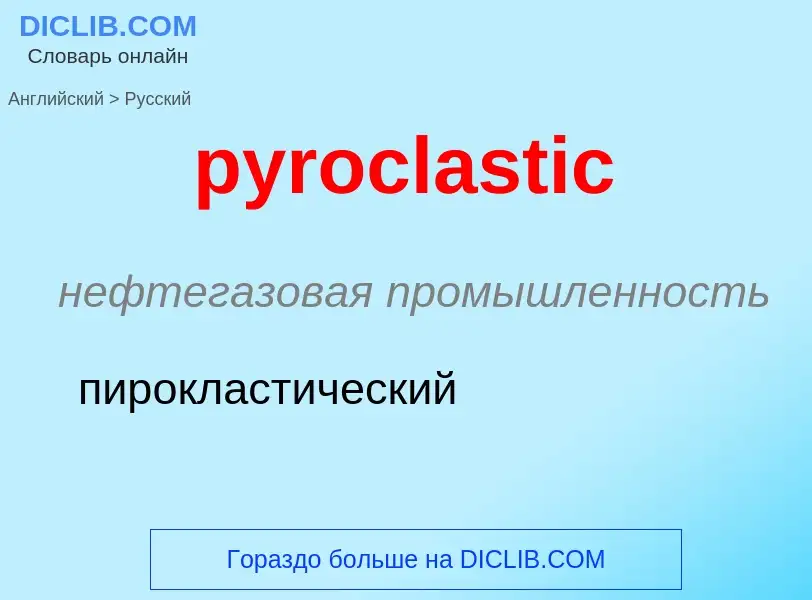Μετάφραση και ανάλυση λέξεων από την τεχνητή νοημοσύνη ChatGPT
Σε αυτήν τη σελίδα μπορείτε να λάβετε μια λεπτομερή ανάλυση μιας λέξης ή μιας φράσης, η οποία δημιουργήθηκε χρησιμοποιώντας το ChatGPT, την καλύτερη τεχνολογία τεχνητής νοημοσύνης μέχρι σήμερα:
- πώς χρησιμοποιείται η λέξη
- συχνότητα χρήσης
- χρησιμοποιείται πιο συχνά στον προφορικό ή γραπτό λόγο
- επιλογές μετάφρασης λέξεων
- παραδείγματα χρήσης (πολλές φράσεις με μετάφραση)
- ετυμολογία
pyroclastic - translation to ρωσικά
нефтегазовая промышленность
пирокластический
нефтегазовая промышленность
пирокластическое отложение
нефтегазовая промышленность
обломочная извержённая порода
Βικιπαίδεια

Pyroclastic rocks (derived from the Greek: πῦρ, meaning fire; and κλαστός, meaning broken) are clastic rocks composed of rock fragments produced and ejected by explosive volcanic eruptions. The individual rock fragments are known as pyroclasts. Pyroclastic rocks are a type of volcaniclastic deposit, which are deposits made predominantly of volcanic particles. 'Phreatic' pyroclastic deposits are a variety of pyroclastic rock that forms from volcanic steam explosions and they are entirely made of accidental clasts. 'Phreatomagmatic' pyroclastic deposits are formed from explosive interaction of magma with groundwater.
Unconsolidated accumulations of pyroclasts are described as tephra. Tephra may become lithified to a pyroclastic rock by cementation or chemical reactions as the result of the passage of hot gases (fumarolic alteration) or groundwater (e.g. hydrothermal alteration and diagenesis) and burial, or, if it is emplaced at temperatures so hot that the soft glassy pyroclasts stick together at point contacts, and deform: this is known as welding.
One of the most spectacular types of pyroclastic deposit is an ignimbrite, which is the deposit of a ground-hugging pumiceous pyroclastic density current (a rapidly flowing hot suspension of pyroclasts in gas). Ignimbrites may be loose deposits or solid rock, and they can bury entire landscapes. An individual ignimbrite can exceed 1000 km3 in volume, can cover 20,000 km2 of land, and may exceed 1 km in thickness, for example where it is ponded within a volcanic caldera.


![Rocks from the [[Bishop Tuff]], uncompressed with [[pumice]] on left; compressed with [[fiamme]] on right. Rocks from the [[Bishop Tuff]], uncompressed with [[pumice]] on left; compressed with [[fiamme]] on right.](https://commons.wikimedia.org/wiki/Special:FilePath/BishopTuff.jpg?width=200)
